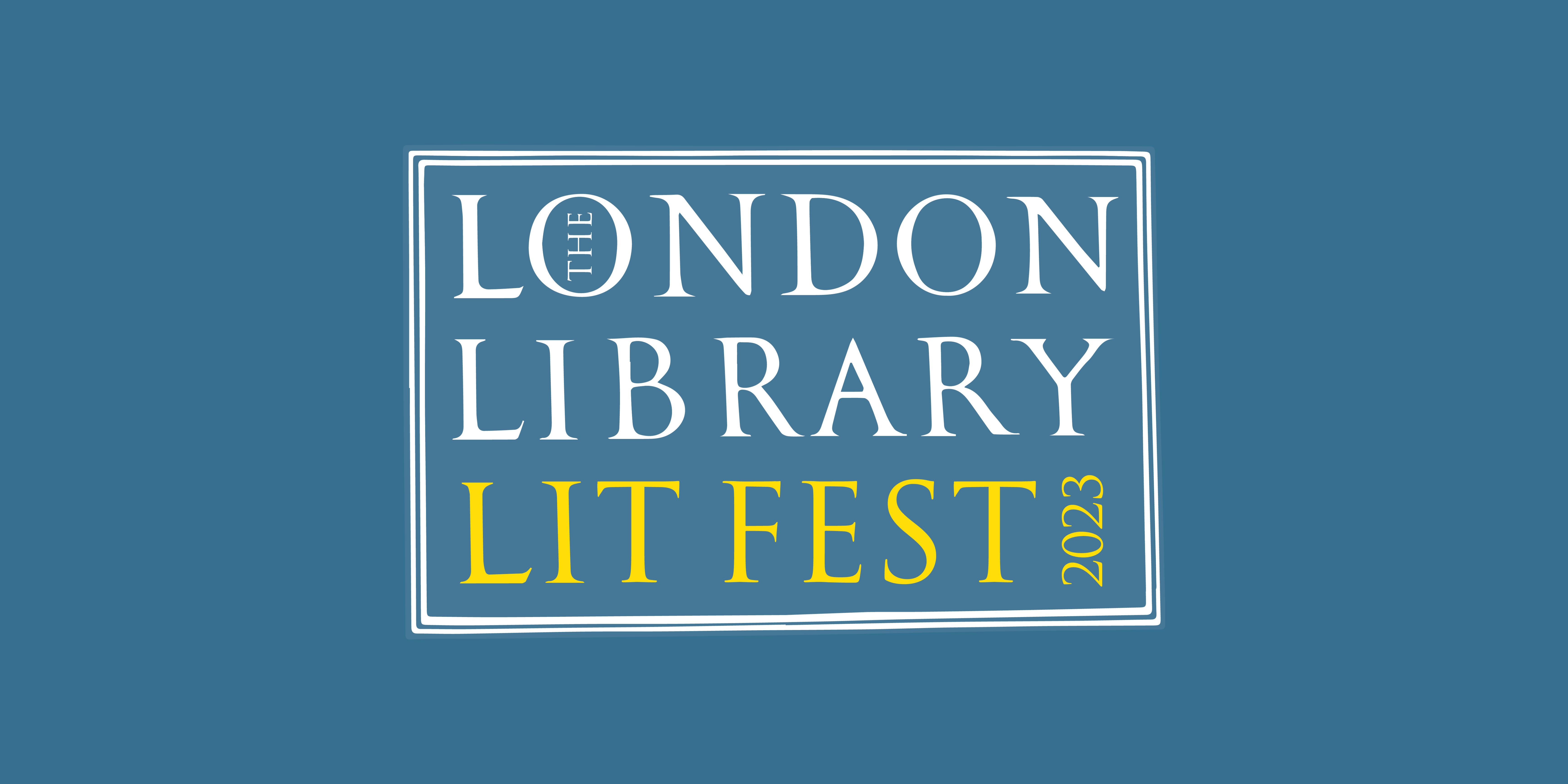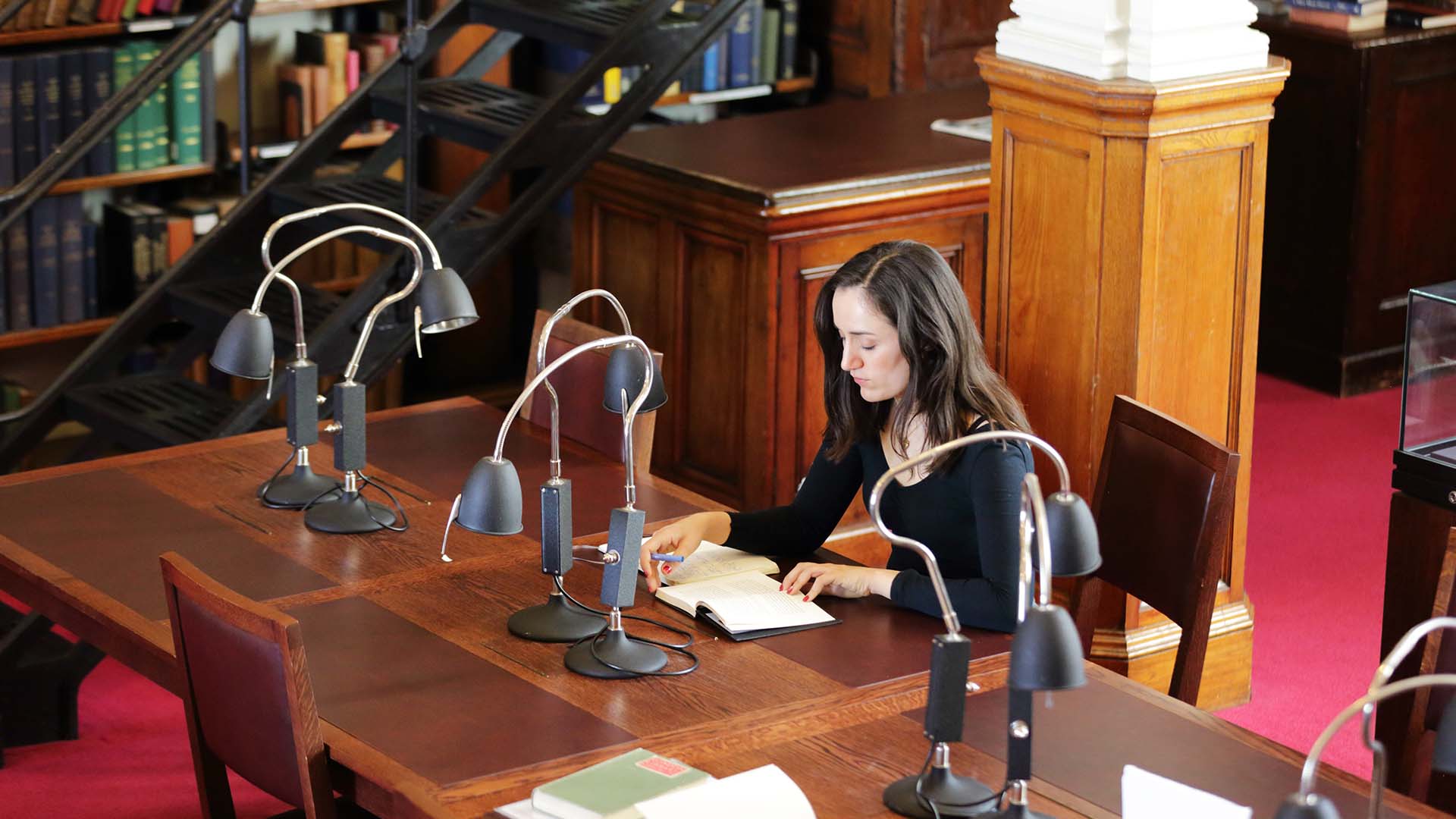Collection Management Drop-in Sessions January 9 and 14: Member Feedback
The proposed collection capacity management strategy is to withdraw from the collection some journal and government publication material that is available online; foreign language journal material that has ceased acquisition; obsolete material; and duplicate copies of books where these are not warranted. Additionally, the proposal is to begin a strategy to move some low-use books to off-site store, with selected foreign language works in subjects other than literature, history and art identified as a particularly low-use category with which to start.
The Library held 7 drop-in sessions which were attended by a total of 31 members. They produced a lot of lively discussion which will be extremely helpful to the Collections Team and the Collections Committee in considering how best to move forward through this very difficult task.
Key points raised by members are covered in the FAQs.
The points of the strategy which caused the greatest amount of discussion were around the nature and characteristics of the existing London Library collection, foreign language material, and communications with members. A summary of the feedback on these issues, and our responses to these, follows:
The nature of The London Library Collection
Members sought to ensure that the Library staff understood the attraction of the Library’s collection. Comments included the following points: that the eccentricity of the collection is a major reason for joining the Library, and we should be careful not to ‘throw the baby out with the bathwater’ and lose the quirkiness of the collection; that whilst librarians may have tidy minds, the eclectic mix to be found on the shelves is part of the Library’s unique value; that whilst there may well be a move towards electronic collection building, it is the extensive print collections that may be borrowed that are unique to The London Library; that many libraries no longer feel like places of scholarship, whilst The London Library has retained that atmosphere.
Response:
We have no desire or intention to erode the unique characteristics of the Library’s collection. Whilst we do believe that a greater reliance can be placed on electronic sources which duplicate extensive print holdings of periodicals and other long series such as government publications, we are fully appreciative of the breadth and depth of material that has been accrued over time and the uniqueness of the collection that we have. Our aim is therefore to handle the necessary reduction in stock held on-site with the utmost care, to ensure that the essential characteristics of the Library’s collection are not eroded.
Foreign language material
Members wished to ensure that the importance of the foreign language books was understood. Foreign language titles in Art, History and Philosophy, particularly nineteenth century editions, are important and to lose them would have implications for those researching the history of these subjects. There was a variety of viewpoints put forward, with one member suggesting that whilst he had borrowed eastern European books from the Library, the collection was not strong in some languages from that region so these could be candidates for withdrawal; it was acknowledged that German works in Fractur (gothic script) were almost illegible to most readers of German, but that removing this material would also impact upon the extent of some collections such as early art theory; the Russian literature collection is known to be strong by those who use it; poetry was given as an example of something which is arguably best read in the original language and it was felt that the Library ought to have better collections of poetry from other countries and cultures.
Response:
The feedback gained through discussions on foreign language material was extremely useful. This is an area where we will engage much more with members through further meetings to explore various options. The low circulation figures for foreign language material (of which there is a large amount) might make it a good candidate for off-site storage. However, this is merely a starting point for discussion, and further engagement with members over how to take such a matter forward will be arranged for later in 2020.
Communications with members
Members were keen to hear of any proposed plans before material is actually removed from the Library. There were requests to share as much information as possible about the Library’s collection management strategy, using more channels of communication and not just the e-newsletter; to let members know in advance what is planned to allow for feedback and safeguard against any assumptions being made about apparent low-usage of material that may be being consulted within the Library only; where possible, to post lists of material to be withdrawn or moved off-site on the website.
Response:
These drop-in sessions have been extremely useful, and are the very start of how we wish to engage with members over the ongoing collection strategy. There were articles in the Library magazine in 2019, as well as e-newsletter communications about government publications, but it does seem as though these are not reaching all members. We will endeavour to widen communications about our plans (for example, by creating these web-pages), and, as is mentioned above, engage in in-depth consultation with members through meetings where we feel we need detailed, qualitative input from members.
The London Library’s shelves are operationally full. Space needs to be made for future acquisitions, as well as to house the existing collection in better conditions which alleviates the danger of damage to the stock, and improves the browsing experience for members.
The Library is embarking on a programme to reduce holdings of some material, and exploring the options for out-storing some items too. This work is being carried out over 2020 and 2021 in order to create space on our shelves, and with an on-going strategy thereafter to keep shelves at an optimal capacity.
This work is being carried out by the Collections Team, led by Matthew Brooke, Director of Collections and Library Services, with the Heads of the Acquisitions, Collection Care and Member Services teams. The work is overseen by the Collections Committee, chaired by Giles Milton.
Collection management update
May 2022
As the London Library shelfmark scheme is unique, we keep it under regular review to ensure that books can easily be found.
We have recently reviewed our shelfmark ‘S. Women’ to ensure that we place books that talk about women’s place in history, science etc. alongside those written about men. As a result, we removed the shelfmark ‘S. Women’ and redistributed these books to over 40 shelfmarks across the library where they will be better discovered by those interested in these topics.
As a further result of this review, we identified a gap around books on feminism and feminist theory, so created a ‘S. Feminism’ shelfmark to ensure these books were shelved together. We also identified books on gender identify, sexuality, etc. Within general books on sex (e.g. history of prostitution) so moved these to a new shelfmark of S. Gender & Sexuality.
March 2022
In the next stage of our project to create space on the shelves for new acquisitions, we will be moving 60 titles from Periodicals 4to. to our offsite store in Oxfordshire.
All of these titles are available online through JSTOR or another reliable provider and, as with the 8vo. (the Periodicals we moved offsite last year), members can request any volume to consult in print and we will have it retrieved. Browse the list of titles here.
December 2020
As the next phase of this strategy, in the New Year we will move a selection of the periodicals held in the basement to off-site store. All titles to be moved are duplicated online and are available to members, either through the Library's subscriptions, such as JSTOR, or on open access websites, including Gallica and Biodiversity Heritage Library. Members will also be able to request print volumes of these periodicals through Catalyst, and they will be retrieved from the offsite store with two working days' notice.
A number of journals that are available online but which we know are well used in print at the Library will be retained on-site. The list of journals proposed for removal to off-site store is here. If there are any specific titles that members wish to retain on-site, please contact This email address is being protected from spambots. You need JavaScript enabled to view it..
Once the periodicals have been removed, a minor rearrangement of stock will be carried out and some additional temporary desk space will be made available whilst social distancing restrictions continue to reduce our available desks by a third.
Further information about the strategy can be found through the following links:
Collection drop-in sessions: member feedback
Collection strategy implementation
Foreign government publications
Feedback about the strategy is welcome. Please send comments to Matthew Brooke, Director of Collections and Library Services: This email address is being protected from spambots. You need JavaScript enabled to view it.
Although our building is closed during lockdown, members can continue to use our free postal loans service and our online services.
Our online collection offers a vast range of material for anyone carrying out research at home. With over a million pages of articles and information from more than 25,000 sources it’s an extensive collection in its own right.
We offer access to eBooks through OverDrive who offer a wide selection of fiction and non-fiction eBooks, and a range of audiobooks.
We also have an excellent postal loans service and we are currently able to post books to members free of charge.
Whether you’re carrying out historic research, working on an academic research project or simply wishing to stay in touch with the literary world, our Library is a goldmine!
Our Online Resources
Academic resources
Through JSTOR you can access a huge digital library of academic journals, books, primary sources and periodicals. London Library membership provides free access to most of JSTOR's content, which subscribed to separately normally costs around £200 per annum.
Members also have access to a vast collection of historic research material through hundreds of publications including The Bibliography of British and Irish History, British History Online, the Proceedings of the Old Bailey 1674-1913, the Survey of London and The British Newspaper Archive, plus much more.
Newspaper archives and historic publications
As a London Library member you’ll be able to use the full digital archives of The Times, The Sunday Times, The Guardian, and The Observer, plus the extensive British Newspaper Archive, the 17th-18th Century Burney Newspapers Collection and more!
This enormous range of archival material is perfect for researching from home - whether you’re working on an academic research project, writing a novel or working on your family history.
Our subscriptions to historic publications - such as the Illustrated London News and the Country Life archive - provide a wealth of information, much of it beautifully illustrated, that is ideal for both work and pleasure.
Literary resources
An extensive collection of literary journals and collections is available if you’re looking to stay in touch with the literary world. London Library membership gives access to titles such as the complete archive of The London Review of Books, New York Review of Books, English Poetry, The Complete Prose of T S Eliot archive, Early English Books Online and many more.
Art
Our online art resources offer a wealth of material for art researchers and art historians. As well as access to all of the art journals available through JSTOR we also provide use of the International Bibliography of Art, Oxford Art Online and more.
Languages
The London Library’s language collection is extensive. Membership gives access to European language newspapers and publications such as Die Zeit/Literatur book reviews and Gallica: The digital library of the national library of France. We also offer Russian literature, language, history and art publications.
Online Research support
Our Member Services team is on hand to help you get the most out of using our online services and to provide enquiry and research services by email (This email address is being protected from spambots. You need JavaScript enabled to view it.). Such help may include:
Helping you identify sources and journal articles in the e-Library relevant to your research or interest
Guidance on how to use the online resources if you have not used them greatly before and would like assistance on how best to approach your research.
Our Book Collection and Postal Loans
Our online resources are complemented by a book collection of extraordinary range and depth. The London Library has over one million books dating from 1700 to the present day, almost all of which can be borrowed.
We have an outstanding postal loans service - you can continue borrowing books by ordering them online and we will then post them to you free of charge. We would normally charge for packing and postage but we have, for now, decided to waive those charges. We have also decided to extend every member’s existing borrowing limit by five books for the duration of the current Library closure, again, free of charge.
Members are able to return books to us either through the letterbox at our St James's Square entrance or by post to 14 St James's Square, London SW1Y 4LG.
Find out more about our postal loans service.

eBooks
As the owner of a collection of over one million books, The London Library remains a proud bastion of the printed word. But through our eLibrary we offer a vast amount of material online, we have now made our first foray into the expanding world of eBooks through OverDrive who offer a wide selection of fiction and non-fiction eBooks, and a range of audiobooks.
We have identified a number of titles that are in high demand in the Library and have purchased additional copies as eBooks. We have also purchased some fiction that we see circulating quite highly in the Library, such as books which have won awards of various kinds. Additionally, we have included a set of classics that are being made freely available by Duke Classics during the pandemic.
Members can access our eBook selection either through the OverDrive website, or through an app called Libby which brings together OverDrive content offered by a wide range of libraries. Members are welcome to make recommendations regarding new e-books for the Library to acquire, similar to our book suggestions scheme.
Events
The London Library runs an ecclectic and vibrant events programme and offers free online events.
New Members
If you are not currently a member of The London Library now is an ideal time to join! Our Remote Access membership is perfect for providing you with thousands of reading resources while you’re at home, while joining as a Full Member will mean you are supporting the future of the Library during this difficult time and will be able to use all of our services - including being able to borrow from a collection of over one million books - when we re-open our building.
All of our memberships can be given as gifts.
The London Library Lit Fest is taking place from Thursday 27 April – Sunday 30 April 2023.
Open to everyone, The London Library Lit Fest will bring together leading figures from the literary world for an eclectic, inspiring and thought-provoking long weekend of conversation, performance, art and music exploring themes of collections, collecting and collectives. Events include creative workshops, fascinating panel discussions, and the first ever performance of Sylvia Pankhurst’s formidable long-lost play Between Two Fires.
Events will be held in the Library’s famous Reading Room across the evenings of Thursday, Friday and Saturday, and all day on Sunday. Events will be livestreamed, opening the Library to all.
The Programme
Thursday
Explore portraits of women writers in an exhibition by South African born, UK-based artist, Susanne du Toit. The exhibition launch, in which this complete series of works is shown for the first time and throughout the festival, is followed by a very special salon with Susanne and some of her illustrious sitters including Juliet Jacques, Dreda Say Mitchell and Sacha Llewellyn and Lara Feigel.
Friday
Don’t miss an electrifying evening of poetry, performance, dance and music to honour TS Eliot's epic poem, The Waste Land and the city it inhabits. Featuring poets Ben Okri, Jay Bernard, Will Harris, Sophie Herxheimer, Daljit Nagra, Richard Scott and Hannah Sullivan, singer songwriter Polly Paulusma and dancer Charlotte Jarvis. An exhibition of sculptures by Jacqueline Nicholls, which grapple with The Waste Land, will be hidden among the Library’s stacks and can also be enjoyed throughout the festival.
Saturday
Discover Between Two Fires, the powerful long-lost play that Sylvia Pankhurst wrote in solitary confinement in HMP Holloway with a contraband pencil. Performed for the first time in a rehearsed reading directed by Roxana Silbert, it will be followed by a panel discussion with Pankhurst’s biographer Rachel Holmes; her granddaughter activist Helen Pankhurst; playwright Sonali Bhattacharyya and London Library archivist Nathalie Belkin. The cast are yet to be announced.
Two inspiring writing workshops will run in partnership with Arvon, the national creative writing charity, across Saturday and Sunday. Artist and poet Sophie Herxheimer will lead a workshop on found and collage poetry using the Library’s collection and novelist Marcel Theroux will lead a workshop on writing politics into fiction. Workshops are in-person only.
Sunday
We kick off Sunday with a showcase of amazing talent from some former participants on our prestigious Emerging Writers Programme. Later in the day we’ll take a fascinating look at anthologies, encyclopaedias and indexes with Simon Garfield, Dennis Duncan, Clare Bucknell and Rishi Dastidar, dissecting the cultural, social and political history of information collation in the Age of Google. Meanwhile, flipping the patriarchy on its head in their most recent books, activist and writer, Yassmin Abdel-Magied brings together Carole Hailey and Ayisha Malik to explore gender, silence and revolution.
And rounding off this year’s Lit Fest, five speakers delve into the Library's idiosyncratic Science and Miscellaneous section to celebrate the Library’s weird and wild heart in a lively event in partnership with 5x15, including poet and playwright Inua Ellams on 'Music', bestselling author Kate Summerscale on 'Fear', award-winning psychotherapist Maxine Mei-Fung Chung on 'Sex' (and desire), film critic Danny Leigh on 'Typewriters' and legendary journalist and biographer Philip Norman on 'Press'.
Please note that the lockers will not be available throughout the festival. Ticketholders are advised to not bring large bags.
The London Library LitFest is supported using public funding by the National Lottery through Arts Council England and by Fondation Jan Michalski.


















